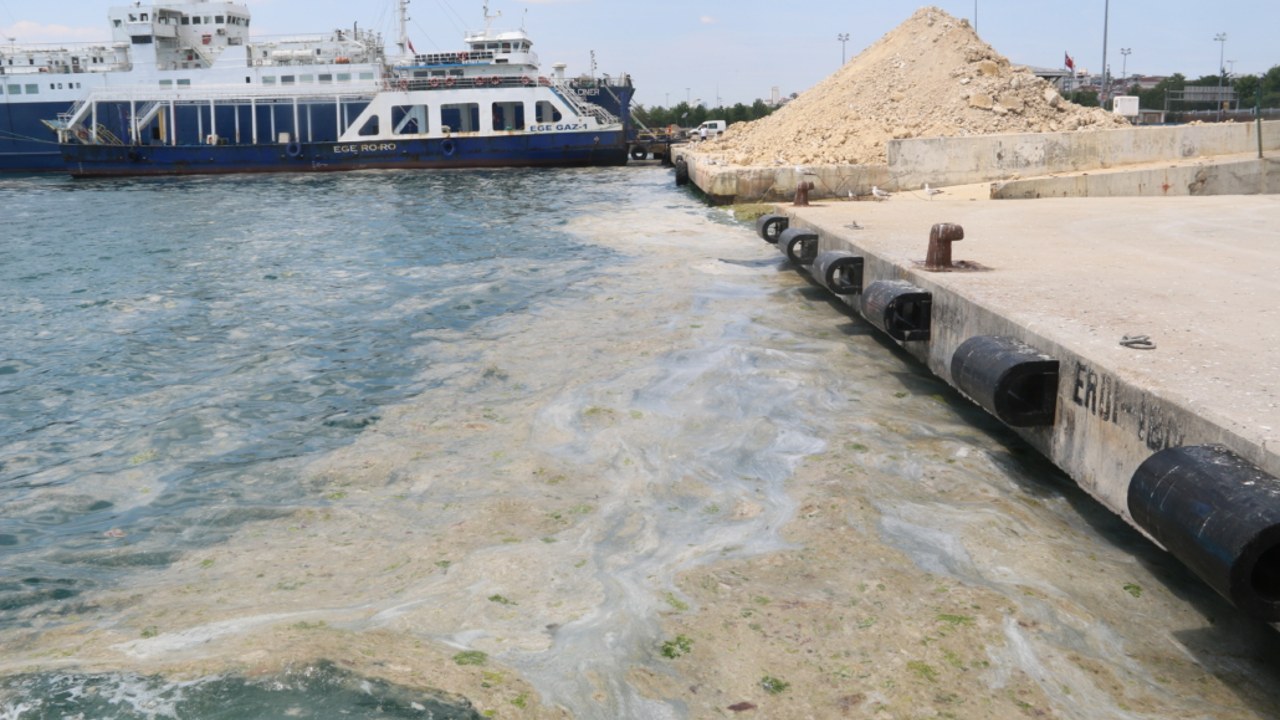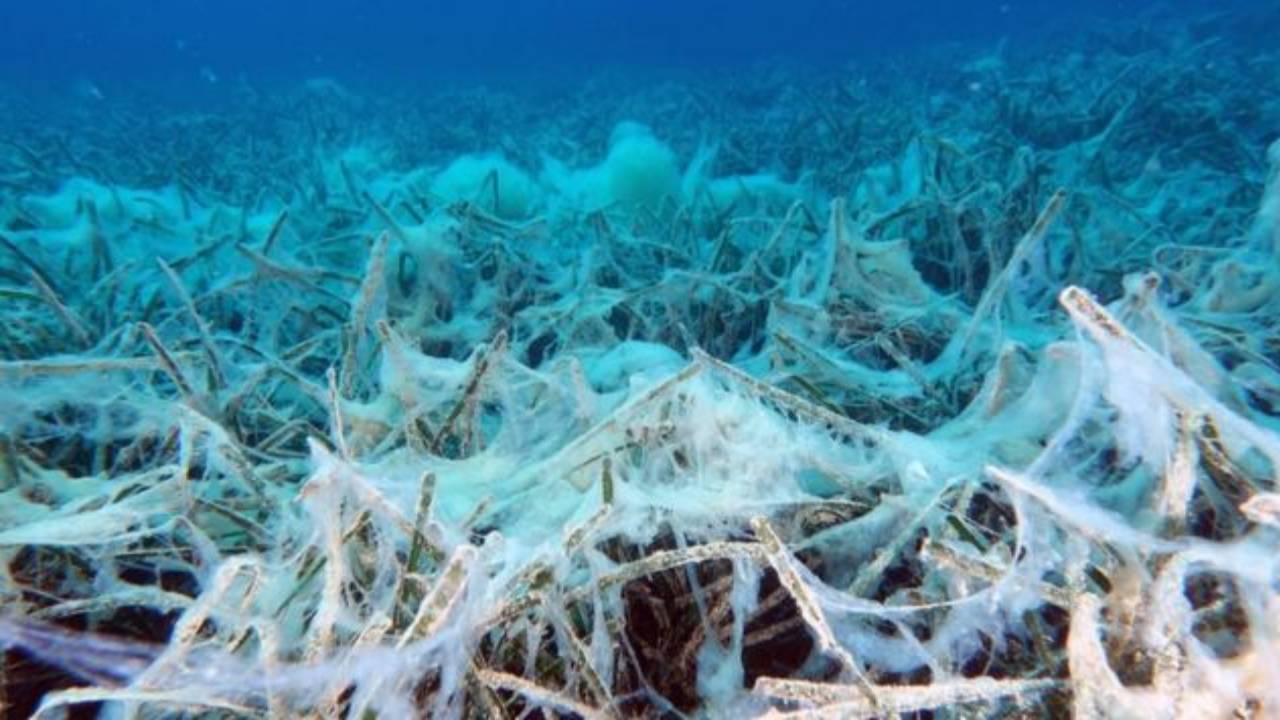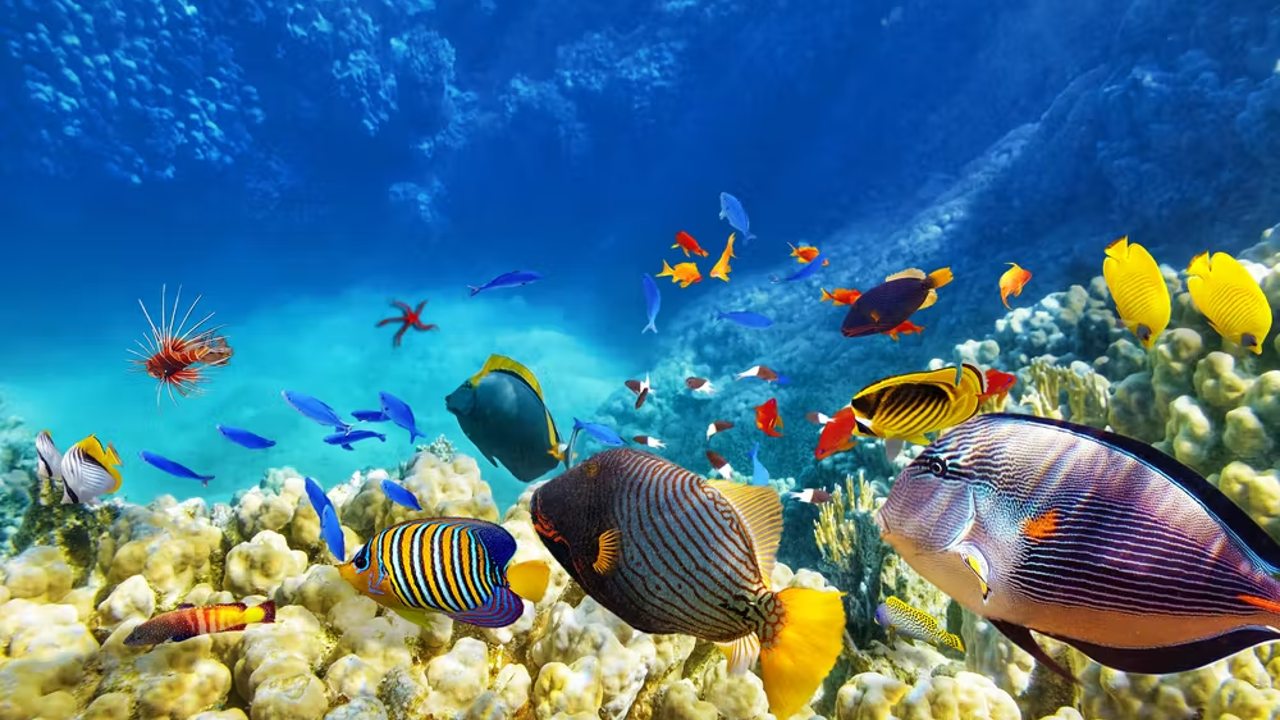Recent investigations in the Sea of Marmara show that the oxygen level has dropped to alarming levels for underwater life and us. However, the researchers warn that the mucilage problem may return as the weather warms up.
Sea of Marmara last summer mucilage faced with the problem; The effect of the mucilage did not abate for months. However, in the studies carried out in September, it was found that the Sea of Marmara was made of mucilage. almost completely cleared had been reported.
However, the decrease in mucilage does not change the fact that the problems in the Sea of Marmara continue. In spite of the possibility of re-emergence of mucilage at the end of their examination at 110 different stations. now Scientists working at METU Marine Sciences Institute stated that no oxygen level states that it has fallen to alarming proportions.
Oxygen level has dropped from 1200 meters to 25-35 meters
Within the framework of the Marmara Sea Integrated Modeling System (MARMOD) Project, which is also supported by the DEKOSİM National Marine Research Infrastructure Center Project and the TÜBİTAK BİDEB Pioneering Researchers Program, studies on the mucilage problem in the Marmara Sea continue without slowing down.
in the Sea of Marmara in March Science-2 ship Scientists from the METU Marine Sciences Institute, which embarked on a new ‘research expedition’ with CTD, examine the samples taken from 110 different stations, including the Istanbul and Çanakkale Straits, with a CTD device. Thanks to the data obtained as a result of this study, new information about the pollution, salinity, temperature, chlorophyll, phytoplankton, zooplankton, amount of oxygen and light, and the causes of turbidity in the Sea of Marmara is reached. The last picture that emerged is that the Marmara Sea is located in it. deplorable condition it reveals.
Last year, in the spring and summer months, mucilage covered all parts of the Marmara, and at that time, especially the sea. Noting that they showed that it was intense in the first 30 meters, METU Marine Sciences Institute Deputy Director Assoc. Dr. Mustafa Yucel, in the last expedition in September, there was almost no mucilage; but this question a heavy bill states that it is.
Yücel said, “Our initial findings are as follows; First of all, we can safely say that there is currently no mucilage in the Sea of Marmara. There is also no sign of mucilage starting.” Yucel, who recorded his statements, “When we approach the Çanarcık Pit, eastward from the Çanakkale Strait, a world of dwindling oxygen welcomes us now in Marmara. “Unfortunately, the oxygen coming from the Dardanelles Strait, especially from the Mediterranean, with that deep water, is already gone when it comes here.”quite a lot of oxygen at low levels He says he’s watching.
Regarding the consequences that oxygen deficiency may cause, Yücel said: “Think of a fish, fish is an important food that is a guest on our tables and an important element of biodiversity in the world. There is a minimum oxygen level necessary for them to live. to the deepest point There was as much (1200 meters) oxygen. A living fish species that could dive there could enter it. Sea level that a fish can enter by 2022 25-35 meters is at its limit. This rises to 22-25 meters last summer and at the end of September, in terms of seasonal oscillations, now we are in winter, 32-35 meters again. We have found that it is currently oscillating between these two intervals, especially in the MARMOD Project expeditions in the last 2 years. The oxygen deficiency limit has increased from 1200 meters to 25-35 meters.” uses expressions.
Marmara Sea is in a ‘coma’ state

In addition to this, Yücel, who also makes statements about the factors that cause oxygen deficiency, conveys as follows:
“The distribution of oxygen in the sea is the result of a balance. Oxygen is produced, first of all, in the sea. What produces it? Living things, most of which are microscopic, which we call algae, grow themselves by photosynthesis and produce oxygen as a by-product. Second, it mixes with the sea from the atmosphere, and third, it mixes with the Mediterranean Sea. If you have currents, they bring oxygen to the deep. These are the inputs and outputs of our oxygen budget. Just as we spend oxygen while breathing, so do we in the sea. living things like us there is. Using oxygen, they break down various ‘food molecules’. They also consume oxygen. If these oxygen inputs do not balance the oxygen outputs, your system will oxygen problem starting.
Currently, the places where oxygen is consumed and the sources where oxygen is supplied in Marmara very much over. The reason for this is that the organic molecules in the sea have increased very much. The main reason for this is again biological origin, since excess nitrogen and phosphorus enter the system, and when they are combined with light, especially in spring and summer, they cause biological production. This means more oxygen consumption. Marmara now this vicious circle has entered. Because of this nutrient surplus, too much food is produced for the system to handle because of the excess nitrogen, phosphorus.”

Noting that the mucilage problem that occurred last year is an example of this situation, Yücel said, “It was a symptom of an over-nutrient load. coma entered the Sea of Marmara. He seems to have come out of that coma now, but there are still conditions that will put him back into that coma. What are these conditions? Nitrogen, phosphorus is still too much. Oxygen ex bad conditions protecting. Therefore, the system stands before us as a system that consumes oxygen net.” He likens this problem in the Sea of Marmara to a “coma”.
The current situation of the Sea of Marmara “must be enough for alarm bells to ring”

Yücel underlined that this decrease in oxygen is a very serious problem for Marmara. “Various researchers at various institutions and at my own university have worked with a similar system in many parts of the world. Marmara Sea even more oxygen-free than them. A sea that a fish cannot enter after the first 25-30 meters is almost non-existent in the world. The Black Sea is famous for being oxygen-free, even there this critical depth is 80-100 meters. It has resisted 25-35 meters in Marmara. Therefore, that volume of water that would support surface fishing or various economic activities is now stuck there. It is the only one in the world with this feature and even this one already to ringing alarm bells it should be enough. Mucilage can speed up the solution of this problem a little bit. Because the action plan announced for mucilage is to cut the excess nitrogen and phosphorus loads I just mentioned. His main goal is to cut them at least 40-50 percent.” uses expressions.
RELATED NEWS
Surprising Statement from the Minister about the Mucilage Problem in Marmara: Mussels Will Cleanse
On the other hand, Yücel stated that the possibility of seeing mucilage continues and will continue to occur in the coming years. “What are the main conditions that create mucilage? Excess nutrient load, namely nitrogen, phosphorus load. What are the other conditions? A decreased biodiversity, the sea being poor in terms of vitality anyway. From time to time, the surface waters can stagnate and suddenly warm up. All these factors make the Marmara Sea for mucilage. From this point of view, yes, mucilage can start in the week or after a month, especially in the coming weeks. critical. We are in the phase where the sea is at its coldest right now. We will see it warm up, maybe stagnate in the coming weeks. This, of course, will bring the risk of mucilage.” he speaks.
Source :
https://t24.com.tr/haber/marmara-deniz-nde-oksijen-azligi-alarmi,1025116
